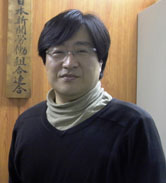Asia
2010
Attacks on the Press 2009: North Korea
Top Developments• Two U.S. journalists held for five months after crossing border. • Citizen reporters begin to smuggle news out of the country. Key Statistic 1st: Ranking on CPJ’s list of Most Censored Nations. During a diplomatic standoff that lasted almost five months, two American journalists from San Francisco-based Current TV were arrested, tried, pardoned, and released.…
Attacks on the Press 2009: Pakistan
Top Developments• Press has very limited access during two military offensives.• Reporters face attacks, threats from all sides. Four are killed. Key Statistic 6: Homes of journalists destroyed by militants in retaliatory attacks. As Pakistan’s military launched two major offensives within its borders, officials pressured news media to report favorably on the conflicts while the Taliban and…
Attacks on the Press 2009: Philippines
Top Developments• Maguindanao massacre underscores deep-seated climate of impunity.• Local and international groups mobilize to offer aid, seek justice. Key Statistic 29: Journalists slain in a politically motivated ambush, the single deadliest event ever recorded by CPJ. In the deadliest event for the press ever recorded by CPJ, 29 journalists and two media support workers…
Attacks on the Press 2009: Sri Lanka
Top Developments• Editor murdered, broadcaster bombed, reporters assaulted.• Columnist convicted of terrorism for his writing. Key Statistic 0: Number of convictions in 10 journalist murders since 1992. On May 19, the government formally declared a victory in its 26-year civil war with the secessionist Liberation Tigers of Tamil Eelam (LTTE), which had claimed territory for…
Attacks on the Press 2009: Thailand
Top Developments• Amid partisan conflict, media owner is target of failed assassination.• Heavily used lese majeste laws criminalize criticism of royal family. Key Statistic 2,000: Web sites blocked by government for violating lese majeste laws. Thai media were caught in the middle of a political conflict that entered its fourth year of destabilizing antigovernment street…
Attacks on the Press 2009: Vietnam
Top Developments• Bloggers face regular harassment and detention.• Government conducts extensive online censorship. Key Statistic 300: Number of cybercafés outfitted with software tracking visits to banned Web sites. While maintaining its tight grip on traditional news media, the government intensified its already significant controls over the Internet with new restrictions on content and heightened monitoring of…
Attacks on the Press 2009: Asia Developments
ATTACKS ON THE PRESS: 2009 • Main Index ASIA Regional Analysis: • As fighting surges,so does danger to press Maguindanao: • Makings of a Massacre Country Summaries • Afghanistan • Burma • China • Nepal • North Korea • Pakistan • Philippines • Sri Lanka • Thailand • Vietnam • Other developments BANGLADESH India’s Border…
Protective bylines, and why they’re necessary
I’ve been writing a lot recently about the urgent need to protect journalists in Afghanistan and Pakistan (a string of links is at the bottom of this entry). While neither country has become as dangerous as, say, Iraq at the height of the conflict, conditions are getting more dangerous for reporters. And very often, it…
Amid crackdown, two blogs shuttered in Vietnam
New York, February 12, 2010—The Committee to Protect Journalists condemns the Vietnamese government’s apparent shutdown of two politically oriented blogs, Blogosin and Bauxite Vietnam. The sites, both of which published critical perspectives on sensitive government issues, had been the targets of ongoing hacking, The Associated Press and the Agence France-Presse reported.

Japanese journalists under pressure: Kisha Clubs and stress
Katsuya Fujimoto and Shuichi Yutaka, the general secretary and the president of Shinbun Roren, the Japan Federation of Newspaper Workers’ Unions, sit at a table in their office in Tokyo’s Bunkyo-ku district amid a pile of papers. A software engineer with a media company and a journalist, each on two years’ leave, they are shuffling…